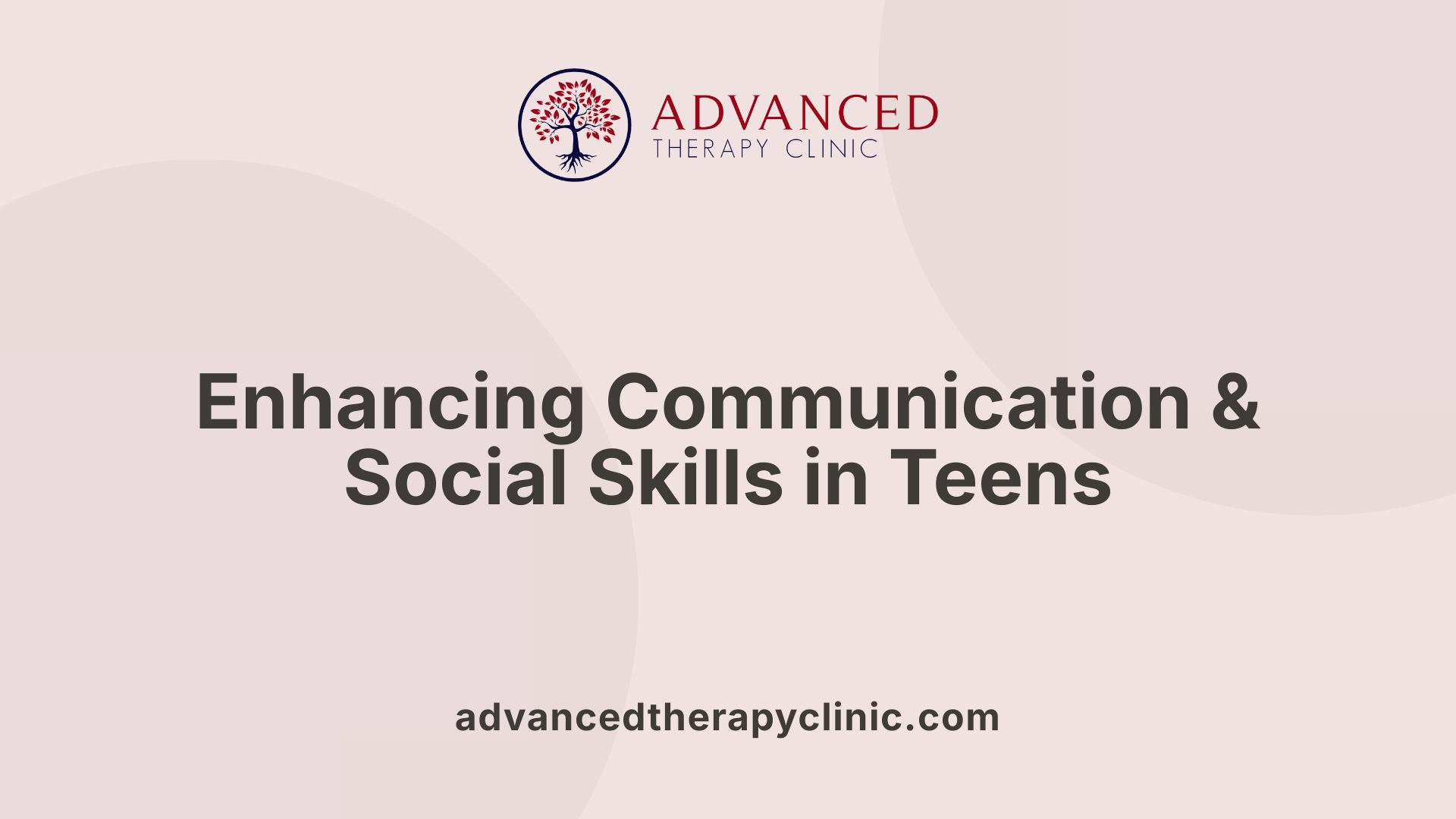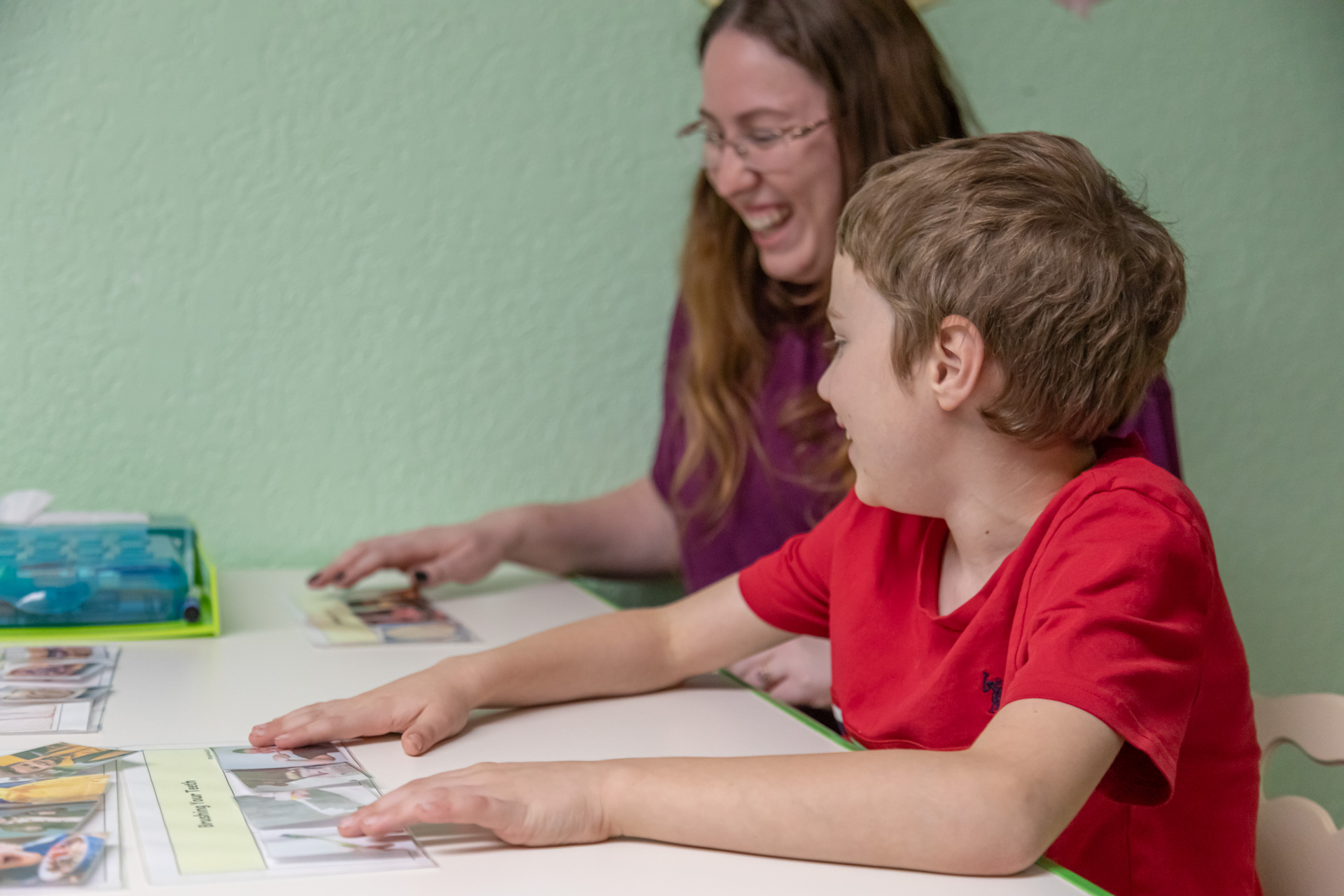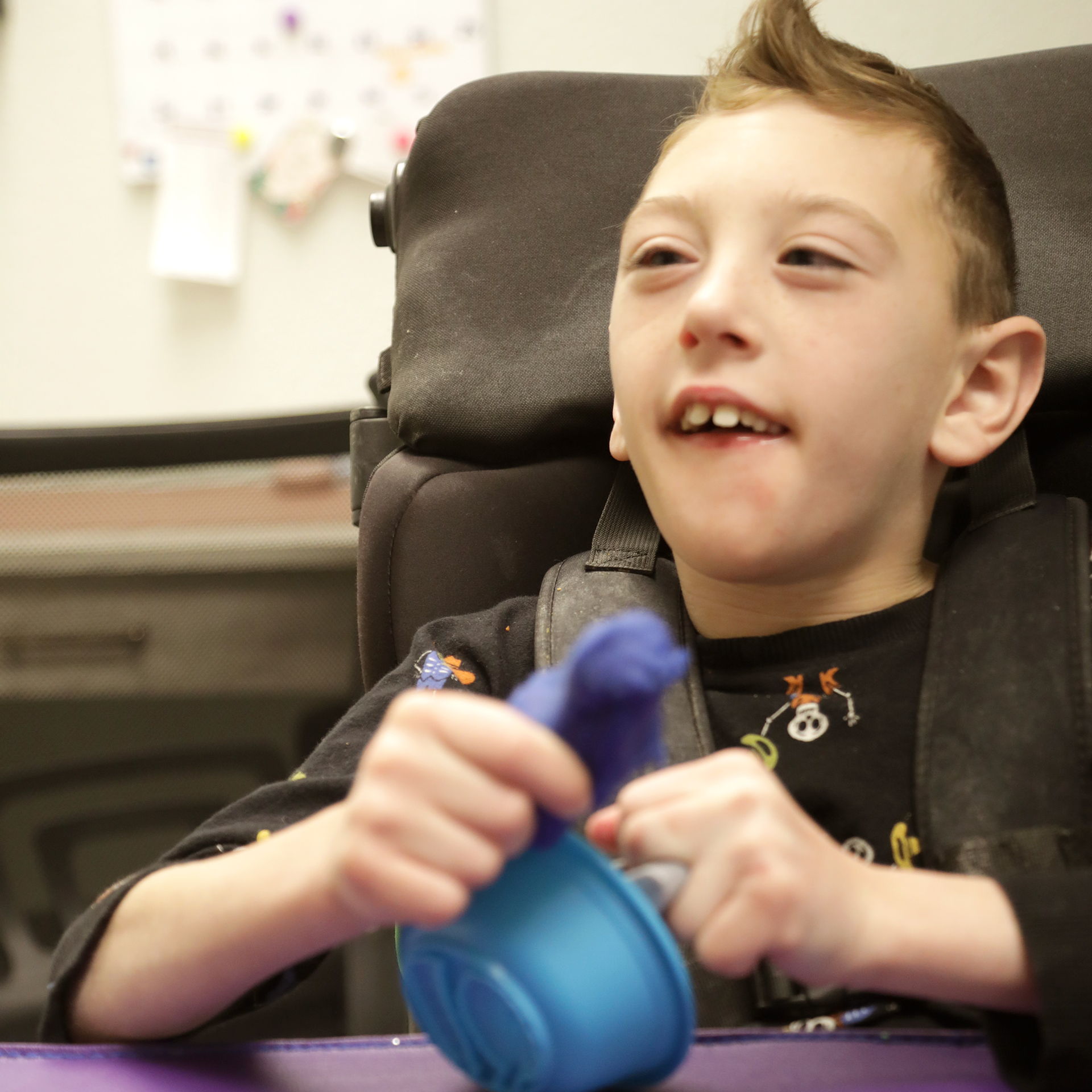Providing Coping Strategies Through Counseling for Teens


The Critical Role of Counseling in Teen Emotional Well-being
Adolescence is a pivotal time marked by emotional growth and challenges. Counseling offers a vital support system for teens, enabling them to understand and manage their emotions effectively. By providing tailored coping strategies, counseling facilitates resilience, improved communication, and healthier ways to handle stress and adversity during these formative years.
Understanding Emotional Challenges in Teens and the Importance of Counseling
What emotional challenges do teens commonly face?
Adolescence is a period marked by significant emotional changes. Teens often struggle with identifying, expressing, and managing complex feelings such as stress, anxiety, and confusion. Hormonal changes and social pressures can intensify these emotions, making it difficult for them to cope effectively. Additionally, teens may experience stress related to academic performance, peer relationships, and identity development.
Why is counseling important for a teen's emotional development?
Counseling plays a crucial role in supporting teens as they navigate emotional challenges. It provides a structured space for teens to understand and express their emotions safely. Through various therapeutic techniques, teens learn valuable coping skills like mindfulness, deep breathing, and problem-solving strategies. These tools enhance emotional regulation, boost self-esteem, and build resilience, fostering healthier development into adulthood.
How does counseling create a safe and supportive environment for teens?
Counseling services offer a non-judgmental, confidential setting where teens feel heard and validated. Therapists use approaches such as active listening and validation to create trust and encourage open communication. This supportive environment helps teens identify stress triggers and develop proactive strategies to manage stress effectively. It also promotes the development of positive communication and time management skills, empowering teens to handle everyday challenges more confidently.
Core Techniques in Teen Counseling to Build Coping Skills

Talk Therapy with Mindfulness and Relaxation
Talk therapy for teens often integrates mindfulness and relaxation strategies to help identify, express, and manage emotions effectively. Techniques such as deep breathing, meditation, and grounding exercises enable teens to stay calm and remain present in stressful situations. This approach promotes emotional regulation by teaching teens practical tools they can use independently to reduce anxiety and regain control.
Active Listening and Validating Feelings
A crucial part of teen counseling involves active listening, where therapists attentively hear what the teen expresses without judgment. Validating feelings by acknowledging and normalizing emotional experiences helps teens feel understood and accepted. This supportive environment encourages open communication, building trust and fostering emotional resilience.
Problem-Solving Skills and Regular Emotional Check-Ins
Therapeutic sessions often include training in problem-solving skills, guiding teens to approach challenges step-by-step. This fosters critical thinking and empowers them to resolve conflicts proactively. Consistent emotional check-ins serve as regular opportunities to assess feelings and coping progress, supporting ongoing emotional well-being and adjustment. These strategies combined strengthen teens’ coping abilities and promote greater independence in managing stress.
Mindfulness and Relaxation Practices Taught in Therapy

What are deep breathing exercises?
Deep breathing exercises focus on controlling breath to reduce tension and promote calmness. They involve slow, deliberate inhalation and exhalation, which helps teens regulate their physiological responses to stress. By practicing deep breathing, teens can lower their heart rate and clear their mind, making it easier to handle challenging situations.
What meditation and grounding techniques are used in therapy?
Therapists introduce meditation practices that encourage teens to focus their attention on the present moment, often guiding them through visualizations or focused attention on sounds and sensations. Grounding techniques help teens connect with their immediate environment through touch, sight, or sound, anchoring them when feelings of anxiety or overwhelm arise. Examples include feeling the texture of an object or listing things they can see around them.
How do these practices help teens manage stress and stay present?
Mindfulness and relaxation practices support teens by increasing their awareness of stress triggers and bodily responses. This awareness enables proactive management of emotions rather than reactive behaviors. These skills foster resilience by helping teens stay centered during stressful moments, which improves emotional regulation and reduces anxiety. By remaining present, teens can approach problems with greater clarity and make thoughtful decisions rather than being overwhelmed by worry or distraction.
Incorporating mindfulness exercises like deep breathing, meditation, and grounding into therapy equips teens with practical tools. These tools empower them to navigate daily stresses effectively, promote emotional balance, and enhance overall well-being.
Developing Communication and Social Skills through Counseling

Good Communication Skills in Teens
Therapy provides teens with a safe, supportive environment to learn and practice effective communication. Through guidance, teens develop the ability to express their feelings clearly and respectfully, which lays a foundation for healthier relationships.
Expressing Feelings Respectfully
Counseling emphasizes respectful expression of emotions. Teens learn to articulate their thoughts and feelings without hostility or aggression, helping to minimize misunderstandings and promote open dialogue with peers, family, and others.
Conflict Resolution and Empathy Improvement
Conflict resolution skills are cultivated by teaching teens critical thinking and proactive problem-solving techniques. Therapy often incorporates role-playing and social stories to enhance empathy, allowing teens to understand different perspectives and resolve disputes more constructively.
Overall, these communication and social skill developments contribute to stronger interpersonal relationships and improved emotional resilience in teens, supporting their well-being during this critical developmental stage.
Time Management and Problem-Solving Strategies in Teen Counseling
How do teens balance academic and personal responsibilities?
In teen counseling, effective time management skills are crucial for helping teens balance academic workloads, extracurricular activities, and personal life. Therapy provides teens with strategies to organize schedules, prioritize tasks, and allocate sufficient time to each responsibility. This reduces stress by creating structure and predictability in their daily routines.
What is the incremental approach to challenges?
The incremental approach taught in counseling encourages teens to break down complex problems or large tasks into smaller, manageable steps. This gradual method builds confidence and reduces overwhelm, enabling teens to tackle difficult challenges systematically rather than feeling discouraged by the overall scope.
How is training in critical thinking and proactive problem-solving achieved?
Counseling sessions include training teens in critical thinking skills to analyze situations, identify potential obstacles, and consider consequences of their choices. Therapists guide teens in developing proactive problem-solving techniques, helping them to anticipate issues and generate multiple solutions before acting. This empowers teens to make well-reasoned decisions and address problems effectively.
Together, these time management and problem-solving strategies foster resilience and improve teens' academic performance and emotional well-being, preparing them for lifelong success.
Lifelong Benefits: Emotional Resilience and Self-Care Habits

Building emotional resilience to bounce back from setbacks
Therapy for teens plays an essential role in developing emotional resilience, the ability to recover quickly from stress, failure, or adversity. Through guided counseling, teens learn how to manage their emotions effectively and maintain a positive outlook during challenging times. This enhanced resilience not only improves mental well-being in the short term but also equips teens with the strength to face future setbacks confidently and adaptively.
Self-care and positive self-talk
An integral part of therapy focuses on teaching teens self-care practices and fostering positive self-talk. Self-care habits such as regular relaxation, mindfulness exercises, and physical activity become lifelong tools for managing stress and promoting overall wellness. Positive self-talk encourages teens to challenge negative thoughts and build a supportive inner dialogue, boosting their self-esteem and reinforcing healthy coping mechanisms.
Long-term stress reduction techniques and their impact
Therapeutic approaches introduce teens to enduring stress reduction techniques, including mindfulness practices like deep breathing, meditation, and grounding exercises. These methods help teens stay calm and centered, improving concentration and emotional regulation over time. As a result, teens experience lower anxiety levels, healthier relationships, and a solid foundation for lifelong mental health.
The combination of emotional resilience, self-care, and ongoing stress reduction cultivated through therapy contributes to a teen’s overall well-being. Together, these skills support healthier responses to life’s challenges, encourage proactive problem-solving, and promote sustained personal growth that benefits teens well into adulthood.
Specialized Approaches: Counseling for Teens with Autism Spectrum Disorder

Challenges with coping skills in autism
Teens with autism often face difficulties with coping skills due to neurological differences that impact how they process information, interpret social signals, and regulate their emotions. Sensory sensitivities, like hypersensitivity to loud sounds or bright lights, can overwhelm these teens and hinder the development of effective coping mechanisms. These challenges make early and specialized support essential.
ABA therapy techniques for emotional regulation and communication
Applied Behavior Analysis (ABA) therapy is a research-backed approach that effectively supports teens with autism in developing emotional regulation and communication skills. Key ABA strategies include positive reinforcement, which uses meaningful rewards such as verbal praise or preferred activities to encourage desired behaviors. Task analysis breaks complex tasks into smaller, manageable steps, building confidence and competence.
Prompting and fading help teens learn new skills through hints or cues that are gradually reduced to foster independence. ABA also enhances social skills through role-playing, social stories, group activities, and real-world peer interaction. Communication improvements come from modeling behaviors, visual supports, and encouragement of expressive confidence. Emotional regulation is strengthened with deep breathing, mindfulness exercises, visual cues, and structured coping routines. Functional communication training (FCT) teaches alternative ways to express needs, preventing outbursts.
Role of early intervention and tailored support
Early intervention is critical for optimizing outcomes in teens with autism. Starting intensive support as soon as autism is diagnosed—ideally lasting at least two years before school age—helps build essential coping skills and emotional intelligence. Therapy plans are highly personalized, addressing each teen's unique needs and strengths. Tailored supports empower teens to better manage stress, improve social functioning, and enhance overall well-being.
Combining ABA therapy with counseling creates a comprehensive support system that nurtures emotional growth, communication, and resilience. Early, individualized interventions lay the groundwork for teens with autism to thrive across social, academic, and daily living areas.
Integrating Mental Health Support Systems to Overcome Barriers

What are the barriers like stigma and access disparities?
Barriers such as stigma around mental health and disparities in access significantly hinder children and students from receiving necessary mental health services. Stigma can prevent open conversations and discourage individuals from seeking help. Access disparities often arise due to socioeconomic factors, geographical limitations, or insufficient resources in schools and communities, leaving many children without proper support.
Why is there a need for integrated frameworks combining educational and behavioral support?
An integrated framework is crucial to effectively address the comprehensive needs of students. Combining educational, social, emotional, behavioral, and health services provides a holistic approach. This integration ensures that mental health support is not isolated but embedded within the educational environment, allowing for timely identification and intervention of issues affecting learning and well-being.
What roles do policy, funding, workforce development, and data usage play?
Policy and funding are pivotal for establishing and sustaining mental health programs in schools. Well-directed funding ensures availability of resources and accessibility for students. Developing workforce capacity through professional training and ongoing support empowers staff to implement interventions effectively.
Moreover, the use of data guides decision-making to optimize support strategies and promotes equitable outcomes. Data-driven approaches help identify gaps, monitor progress, and allocate resources where they are most needed.
Together, these components create a robust support system that overcomes existing barriers and fosters the mental health and emotional well-being of children and teens.
Fostering Resilience and Independence Through Counseling
Counseling plays an indispensable role in equipping teens with the coping strategies necessary to navigate the complexities of adolescence. Through a combination of therapeutic techniques—including mindfulness, communication training, problem-solving, and specialized interventions like ABA therapy—teens develop emotional resilience, better self-awareness, and practical skills that benefit them throughout life. Addressing structural barriers and integrating comprehensive support systems are critical steps to ensure all teens can access these life-enhancing services, fostering healthier, more independent futures.
References
- Expert Child Counseling Techniques for Emotional ...
- OT, PT, Speech vs. ABA: Early Intervention | MPG
- Powerful ABA Therapy Strategies That Help Teens Thrive
- Coping Skills Development in Early Intervention for Autism
- Building Coping Skills in Children and Adolescents
- Coping Strategies: How Therapy Can Help Teens Manage ...
- Supporting Child and Student Social, Emotional, ...
Recent articles

What to Expect at Your First Therapy Session
Discover what your child’s first therapy session looks like, from rapport building to goal setting, and how families can feel confident starting care.

Celebrating Small Wins: How Therapy Helps Kids Build Confidence All Year Long
Learn why small wins in therapy matter, how they boost your child’s confidence, and simple ways families can celebrate progress all year long.

Empowering Missoula Children to Grow With Confidence and Connection
Learn how ABA therapy in Missoula helps children build communication, independence, and confidence through personalized, family‑centered support at Advanced Therapy Clinic.

Compassionate Pediatric Therapy in Butte, Montana
A welcoming place where every child’s potential is celebrated

How Pediatric Therapy Helps Kids Thrive across Montana and Wyoming
A supportive guide for families exploring therapy options in Billings, Butte, Missoula or Sheridan.

How to Choose the Right Pediatric Therapy Clinic in Billings, Montana
A Parent‑Friendly Guide To Finding The Best Support For Your Child

